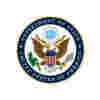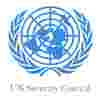Risk Mitigation in Applying Government Terrorist Designation Lists
This is a supplement to the GIFCT’s definitional framework project and database. This page lists the pros, and cons of terrorist designation lists. Additionally, it outlines some risk mitigation tactics for tech companies to consider while reviewing and potentially applying government terrorist designation lists.
Understanding and Applying Government Terrorist Designation Lists
GIFCT works to ensure that tech companies are better equipped to counter terrorist and violent extremist exploitation while respecting fundamental and universal human rights. Here we discuss some of the Pros, Cons and Risk Mitigation strategies that tech companies might want to consider when referencing government terrorist designation lists.
As shown in the definitional framework side of this site and outlined by a number of experts in the taxonomy report on Broadening the GIFCT Hash Sharing Database, there is not one agreed-upon definition of terrorism or violent extremism for private companies to lean into. Not only is there a spectrum of definitions but designations are also drawn from international laws, national government designation lists, and conceptual frameworks that include dynamic behavioral factors as is outlined in the GIFCT Year 3 Legal Frameworks Working Group’s animated explainer. Many companies defer to government designation lists to ensure compliance with legal obligations, while some larger companies have developed their own working definitions in order to assess groups and activities more proactively, based on behavioural signals online in combination with offline indicators, such as news about attacks on civilians.
When academics and practitioners review designation lists, concerns have been raised about potential Western biases in the lists that many tech companies rely on, as well as concerns about pressures from non-democratic countries to have tech platforms use lists that might not comply with broader human rights frameworks. There are cases where governments have added activist networks, journalists, opposition parties, and even tech companies to “terrorist” or “extremist” designation lists as a means to suppress or retaliate against government opposition. It is also the case that most government lists, post 9/11, tend to focus largely on Islamist extremist terrorism (despite some recent additions of groups related to white supremacy in the U.S., U.K., Australia, New Zealand and Canada). Some of our latest Legal Frameworks Working Group research provides more guidance for tech companies looking for a set of standard minimums, thresholds, or tests to establish whether content meets the standard of TVEC.
The difficulties of navigating legal compliance in different parts of the world is further complicated for many tech companies when, even after identifying content from a terrorist group belonging to a country’s designation list, it is hard to identify the intent behind the content. It can be very difficult for tech platforms to unequivocally identify and label “members” or “activity” of a terrorist or violent extremist group unless there are very obvious profile or account indicators or self-declared membership by a user. A one-off post containing terrorist content could be shared by an activist raising awareness, an academic providing analysis, or news media discussing recent events. This GIFCT map is a useful tool in understanding emerging and current legislation, including proposals and technical papers, relating to the moderation of violent extremist and terrorist related content online, with a focus on the obligations placed on technology companies.
While this resource is not prescriptive, it does provide initial guidance and case studies related to government designation lists. Different tech companies will apply differing approaches to how they operationalize counterterrorism and counter-extremism efforts based on how their platforms work, their technical and human capacities, and platform-specific terms of service. However, we hope it is a utility to tech platforms and broader stakeholders in the counterterrorism and counter-extremism sector.
Benefits
Using national and/or international terrorist designation lists is often a tech companies first step to ensure legal compliance and safety due diligence in the counterterrorism field. There can be value in these lists, highlighted here through case studies and resources related to the application of lists.
Terror Designation Lists provide legal structures for criminal prosecution and provide legal reasoning for why a company might take action on content or activities from these groups and individuals:
As a terrorist group or individual is added onto a government designation list, they are immediately faced with the full legal consequences that are attached with such designations. This allows parties who use those lists as a reference point to criminally prosecute terrorist organizations and activity. This also allows tech companies to act on their Terms of Service if they prohibit terrorist activity on their platform(s).
-
 Focus caseU.S.
Focus caseU.S.The addition of a group or individual to a government designation list goes beyond signalling the country’s political position. This article outlines the overall designation process in the United States, as well as the various ways in which its consequences include multiple government agencies with varying degrees of legal oversight and impact.
-
 Focus caseNew Zealand
Focus caseNew ZealandDesignating the perpetrator of an attack to a list of terrorist entities allows governments to freeze an individuals assets and financial networks. The designation of the Christchurch attacker as a terrorist allowed the government of New Zealand to make it a criminal offense to fund or support any efforts by the individual. This also signalled to tech companies that they could take stronger actions against instances of the attacker’s livestream, manifesto and wider online praise or support for the attacker.
-
 Focus caseCanada
Focus caseCanadaBy adding a group to a legally binding proscribed terrorist list, legal action can swiftly be taken to halt the group’s operations. Canada proscribed Proud Boys in 2021 leading to its dissolution of Canadian chapters. This designation lists Proud Boys as a Neo-fascist organization that engages in political violence. This official status and language allows tech companies to act more comprehensively against an entity that might otherwise be seen as “awful but lawful”.
Terrorist Designation Lists enable international bodies to hold governments to account:
In cases of abuse and/or (mis)use of designation lists, terrorist designation lists can serve as reference points for bodies such as the U.N. to hold governments accountable for their actions. This provides actors who plan on consulting particular lists with an added layer of protection.
-
 Focus caseUnited Nations
Focus caseUnited NationsThe use of government terrorist designations to target civilians, political opposition, or media networks has been legally scrutinized. In this case, the UN Office for Human Rights (OHCHR) requested that the Kazakh government undergo an independent investigation for their use of terrorist designation to justify the killings, and detention of civilians. These types of UN documents can help tech companies make more nuanced decisions about how they apply government and international government guidance on terrorism in a way that respects human rights.
-
 Focus caseUN Resolution 2396
Focus caseUN Resolution 2396In its resolution 2395 (2017), renewing the mandate of the Counter-Terrorism Committee Executive Directorate (CTED), the UN Security Council - Counter Terrorism Committee reminds States that effective measures to counter terrorism and violent extremism are complementary to their commitment to human rights, and essential to long term success.
Disadvantages
Terrorist designation lists can present some challenges for tech companies and other sectors that use government lists to structure their own policies and actions. Country designation lists are focussed on national context and threats, with large amounts of country and regional variation in how definitions of terrorism might be applied.
Terrorist Designation Lists used as (geo)political tools between countries in conflict:
Governments use the addition of particular groups as a tool to make a political statement in the international arena. As a result, designations can sometimes be seen as a performative act. This can be burdensome for actors who reference particular lists as it requires that they take on their own investigation of the larger political contexts within which particular additions are made.
-
 Focus caseNorth Korea
Focus caseNorth KoreaGovernments have a history of adding particular actors to terrorist designation lists as part of their larger foreign policy strategy. The United States’ designation of North Korea as a state sponsor of terrorism makes it very difficult for international companies and global tech platforms to operate or connect people in parts of the world that are already often isolated from the international community. Iran, Sudan and Syria have also faced similar status in US designations.
-
 Focus caseU.S. / Iran
Focus caseU.S. / IranTerror designations can be included in negotiations or escalating tensions between countries. In 2019 the US designated Iran’s Revolutionary Guard (IRGC) as a foreign terrorist organization. In retaliation, in 2020 the Iranian government designated the U.S. military and Pentagon as terrorist organizations as a response to the IRGC designation and killing of their military leader, Qassim Soleimani. Designating government officials and organizations can make it extremely difficult for tech companies and other sectors looking to be legally compliant on disallowing “praise and support” of terrorist entities. Disallowing a country to praise their own military or government official could lead to vast over censorship of wider normative speech from civil society.
Terror Designation Lists can be used to suppress human rights and political dissent:
There are cases where designation lists have been used as a tool to suppress companies, groups, and individuals that do not align with a government’s aims. Human rights organizations and the UN have noted concerns about the use of designation lists in the abuse of human rights. This can be challenging for tech companies and wider stakeholders attempting to apply designation lists with global parity, as reference points for applying policies. Any stakeholder looking to use designation lists should closely review the history of a designation process, transparency around designation processes, and the overall human rights record.
-
 Focus caseRussia
Focus caseRussiaIn 2022 Russian courts banned Facebook and Instagram for ‘extremist activities’ at the height of the invasion of Ukraine, as well as publicly seeking to add the tech company onto their national designation list. This was seen as retaliation for the platforms’ labelling and in some cases removal of Russia media posts and channels under their misinformation policies.
-
 Focus caseArab Gulf Countries
Focus caseArab Gulf CountriesCountries invoke national security priorities as a way to add certain opposition actors to terror designation lists. Bahrain, Saudi Arabia, and the United Arab Emirates have been criticized for numerous cases of human rights abuses by the governments applying overly broad restrictions on citizens under the guise of anti-terror laws, curtailing free expression, association, and assembly.
-
 Focus caseChina
Focus caseChinaThe Chinese government has a history of using designations to target dissidents and human rights activists under the pretext of counterterrorism. This report points to the country’s evolving, and broad, criteria for designation along with cases of designated groups that the international community do not view as terrorist organizations.
-
 Focus caseU.N. Resolution 1624
Focus caseU.N. Resolution 1624The chilling effect that designation lists have on civil society are particularly significant considering the role these organizations play in healthy democracies. The UN resolution 1624 stresses the significance of CSOs through their ability to promote tolerance and coexistence, and to foster a peaceful environment.
Terrorist Designation Lists incorporate national biases:
In a post 9/11 international context, designation lists have a history of overly focusing on Islamist extremist terrorist groups and individuals. This is particularly challenging as it requires actors referencing the lists to invest in better understanding the larger threat landscape, particularly in light of the recent rise in white supremacy and ethno-nationalist related violent extremism.
-
 ExplainerThe Impact of Legal Definitions of Terrorism
ExplainerThe Impact of Legal Definitions of TerrorismThis video explores the ways in which designation lists have unintentionally caused the stigmatization of a particular religious community and overly impacted the Muslim community.
-
 Focus caseGlobal Biased Focus on Islamist Violence
Focus caseGlobal Biased Focus on Islamist ViolenceTerrorist designation lists have a biased focus on Islamist extremist terrorist groups. Only recently have governments moved to add white supremacist and neo-Nazi groups to their designations.
-
 Focus caseU.N. Resolution 2178
Focus caseU.N. Resolution 2178The United Nations’ terrorist designation list is viewed as one of the most globally agreed upon. However, in this resolution, the intergovernmental body highlights the significance of recognizing that terrorism cannot and should not be associated with any religion, nationality or civilization.
Terror Designation Lists are often unclear around designation and removal processes:
Many governments lack transparency around the criteria and processes involved in adding or removing groups onto terror designation lists. When that is the case, it can be challenging to understand the rationale behind certain designations.
-
 Focus caseE.U. / India / Pakistan / Russia /U.K. / U.S.
Focus caseE.U. / India / Pakistan / Russia /U.K. / U.S.Some governments do not offer much clarity around the designation process and qualifications. This research article points to 6 national case studies to better understand the underlying mechanisms for designation as it does not seem to be driven by target or attack severity.
-
 Focus caseU.S.: Complexity of the Designation Process
Focus caseU.S.: Complexity of the Designation ProcessThe processes surrounding terror organizations’ designation and/or removal can be rather complex. This analysis of the definition of terrorism in the US context highlights some questions around the existing application of the tier III terrorist designation.
Risk Mitigation Tactics
As the previous sections demonstrate, tech companies and other stakeholders referring to national and international designation lists should be cautious and have oversight in how they might apply a list to their policies and operations. By the same token, government designation lists are a necessary reference point, as well as a legal compliance element, that must be taken into account. While keeping the aforementioned pros and cons in mind, GIFCT presents a few tactics that can be employed as government designation lists are considered.
Prioritization of lists with transparent processes and methodologies:
Stakeholders should focus on designation lists that are supplemented with a clear outline of definitions for designation and processes outlining specific criteria that a group or organization must meet in order to be designated on the list. Additionally, the lists should clearly state enforcement mechanisms, and detail agencies and organizations responsible for prosecuting criminal and/or terrorist activity.
-
 ResourceUN outline of specification areas needed around tech definitions of terrorism
ResourceUN outline of specification areas needed around tech definitions of terrorismMandate of the Special Rapporteur on the promotion and protection of human rights and fundamental freedoms while countering terrorism.
-
 ResourceLegal processes and consequences of the designation in the U.S
ResourceLegal processes and consequences of the designation in the U.SWhat does a "Terrorist Designation" mean? Anna Meier's political essay discusses what "terrorist" designation really means.
-
 ResourceThe significance of transparency in methods
ResourceThe significance of transparency in methodsPolitical Violence at a Glance examines how governments decide which groups are "Terrorist organizations".
-
 ResourceThe U.S. government’s legal criteria for designation
ResourceThe U.S. government’s legal criteria for designationForeign Terrorist Organizations (FTOs) are foreign organizations that are designated by the Secretary of State in accordance with section 219 of the Immigration and Nationality Act (INA), as amended. FTO designations play a critical role in our fight against terrorism and are an effective means of curtailing support for terrorist activities and pressuring groups to get out of the terrorism business.
Cross reference/combine country lists alongside collaborative/multinational body lists:
Multinational bodies (such as the U.N.) produce lists that generally require an extensive process of multinational negotiations and agreement. This process usually comes with multiple layers of scrutiny, a focus on human rights, and the ability to be applicable over broader geographies. Actors should superpose multiple lists as a way to provide additional context that is sometimes excluded from singular national designation lists.
-
 ResourceGIFCT’s outlined benefits of combining multiple lists
ResourceGIFCT’s outlined benefits of combining multiple listsBroadening the GIFCT Hash-Sharing Database Taxonomy: An Assessment and Recommended Next Steps
-
 ResourceThe implications of multinational lists
ResourceThe implications of multinational listsTerrorist definitions and Designations lists, What Technology Companies Need to Know. Royal United Services Institute for Defence and Security Studies - Global Research Network on terrorism and Technology: paper No.7
Center human rights as you approach the use of terror designation lists:
As previously noted, terror designation lists can be used as tools to silence dissenting voices, oppress the press, and block grassroots activism in many parts of the world. Actors should always center human rights in their use of designation lists by consulting the history of a country’s history of previous abuses.
-
 ResourceGIFCT’s Human Rights Impact Assessment.
ResourceGIFCT’s Human Rights Impact Assessment.The Global Internet Forum to Counter Terrorism (GIFCT) commissioned BSR to conduct a human rights assessment of its strategy, governance, and activities. The purpose of this assessment is to identify actual and potential human rights impacts (including both risks and opportunities).
-
 ResourceThe U.N. resolution and fact-sheet requiring any measure taken to combat terrorism to comply with international human rights.
ResourceThe U.N. resolution and fact-sheet requiring any measure taken to combat terrorism to comply with international human rights.Resolution 1456 (2003) Adopted by the Security Council at its 4688th meeting, on 20 January 2003
-
 ResourceThe U.N. Report focused on the promotion and protection of human rights and fundamental freedoms while countering terrorism.
ResourceThe U.N. Report focused on the promotion and protection of human rights and fundamental freedoms while countering terrorism.The United Nations report focused on the promotion and protection of human rights and fundamental freedoms while countering terrorism.